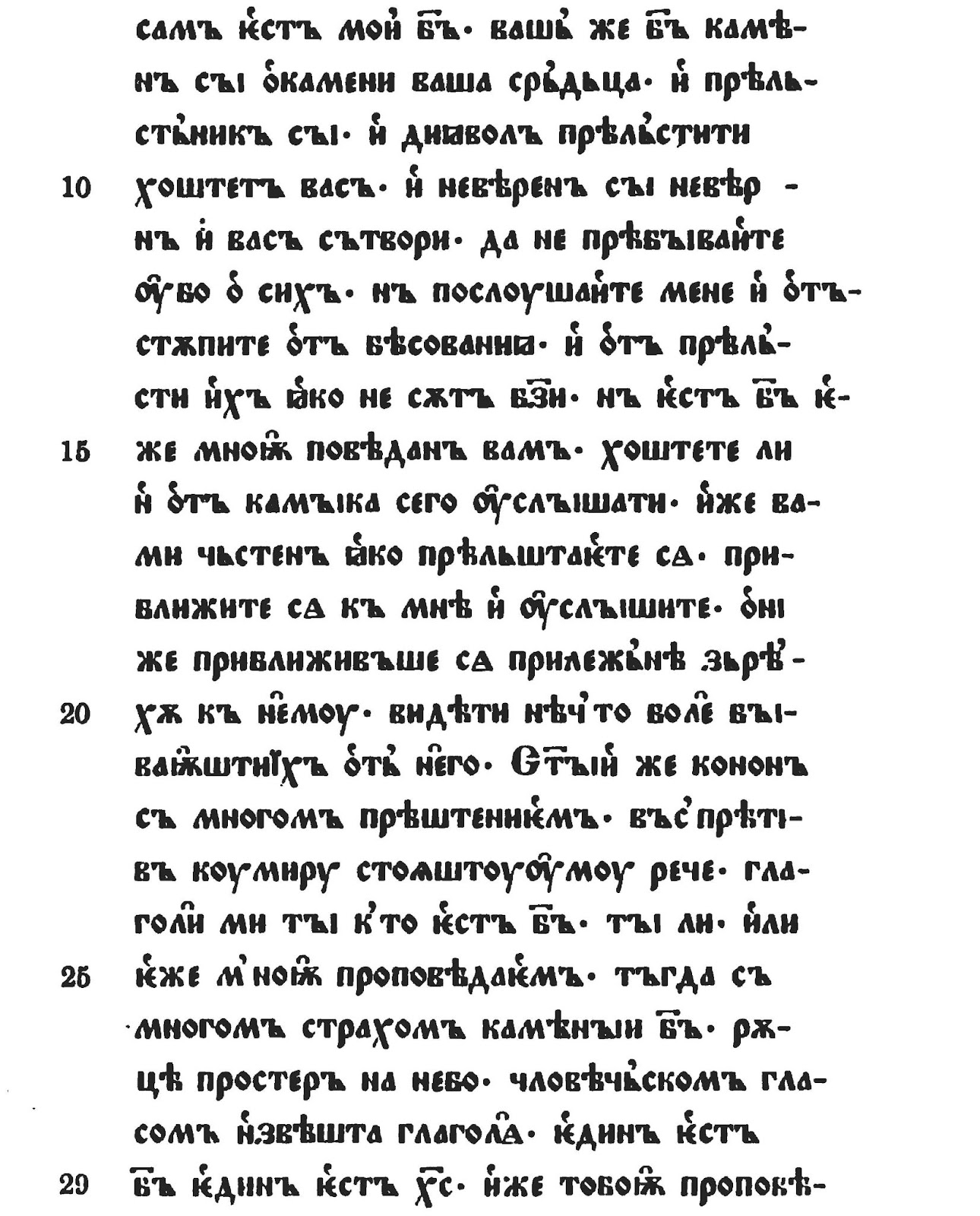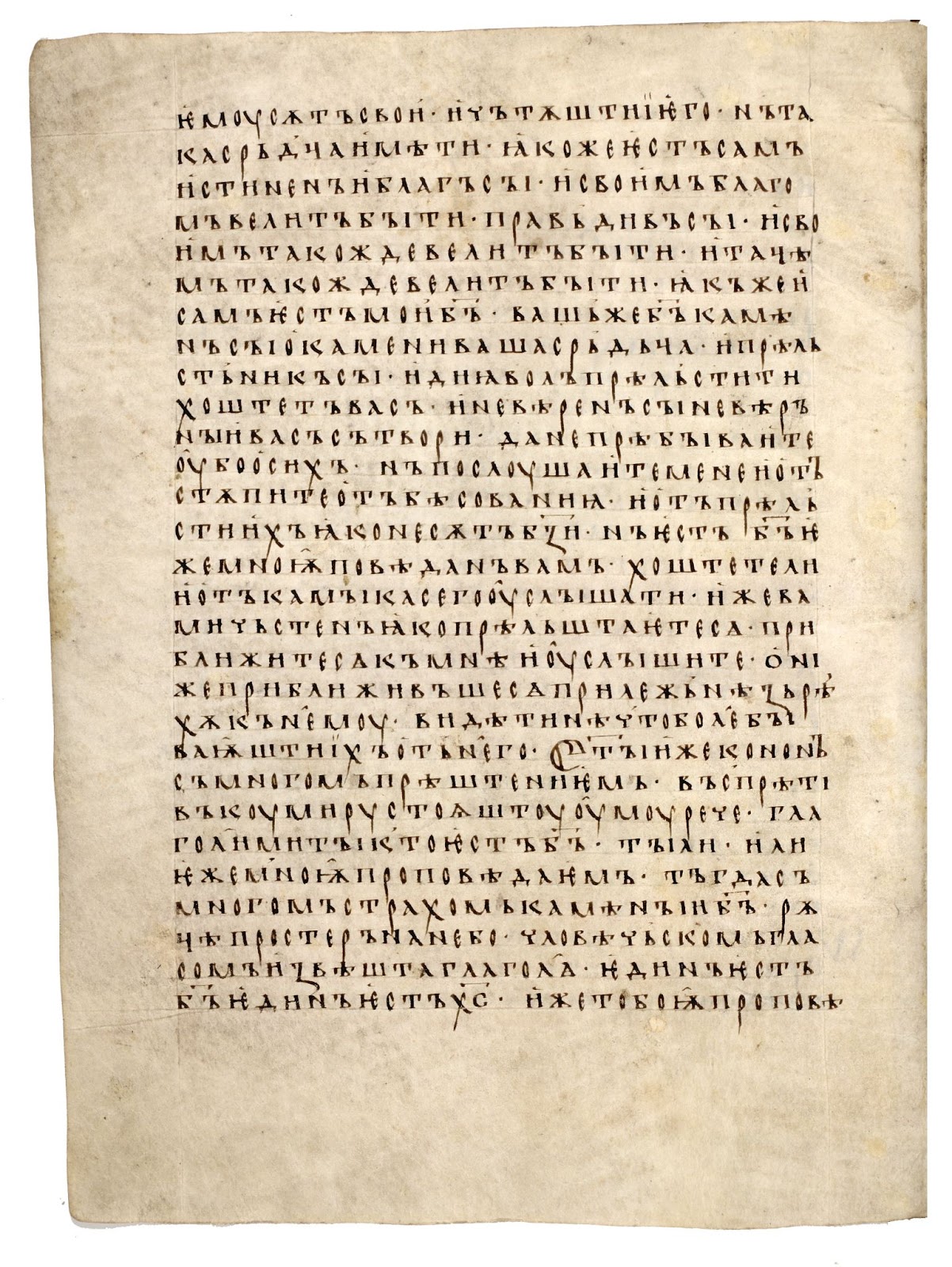Phonetics:
- the strengths and weaknesses of the reduced (semi-vowels);
- vocalic r and l with semi-vowels;
- the system of consonants – hard, semi-soft, soft.
Graphics:
- writing Ѧ;
- writing affricates ШТ (št) (with compare with Savva's book).
Grammar:
- pronouns in Old Slavic (categories, forms)
Text: The Codex Suprasliensis (Супрасльская рукопись, fragment)


Dictionary
|
|
|
|
|
|
|
|
|
|
|
|
|
|
|
|
|
|
|
|
|
|
|
|
|
|
|
|
|
|
|
|
|
|
|
|
|
|
|
|
|
|
|
|
|
|
|
|
|
|
|
|
|
|
|
|
|
|
|
|
|
|
|
|
|
|
|
|
|
|
|
|
|
|
|
|
|
|
|
|
|
|
|
|
|
|
|
|
|
|
|
|
|
|
|
|
|
|
|
|
|
|
|
|
|
|
|
|
|
|
|
|
|
|
|
|
|
|
|
|
|
|
|
|
|
|
|
|
|
|
|
|
|
|
|
Dictionary of abbreviations (words under the title)
|
|
|
|
|
|
|
|
|
Personal pronouns
|
|
|
|
|
|
|
|
|
|
|
|
